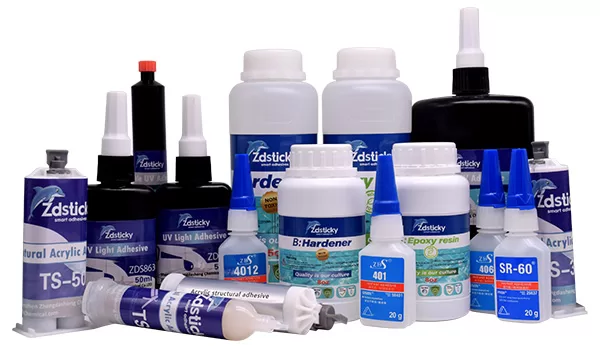Denture adhesives play an essential role in improving the comfort and stability of dentures. Given their widespread use, it’s critical to ensure these products are safe and effective for consumers. To address this, the U.S. Food and Drug Administration (FDA) regulates denture adhesives under specific rules and classifications. If you’re wondering whether denture adhesives need to be registered with the FDA, the short answer is yes. However, the extent of regulation depends on how the product is classified and intended for use.
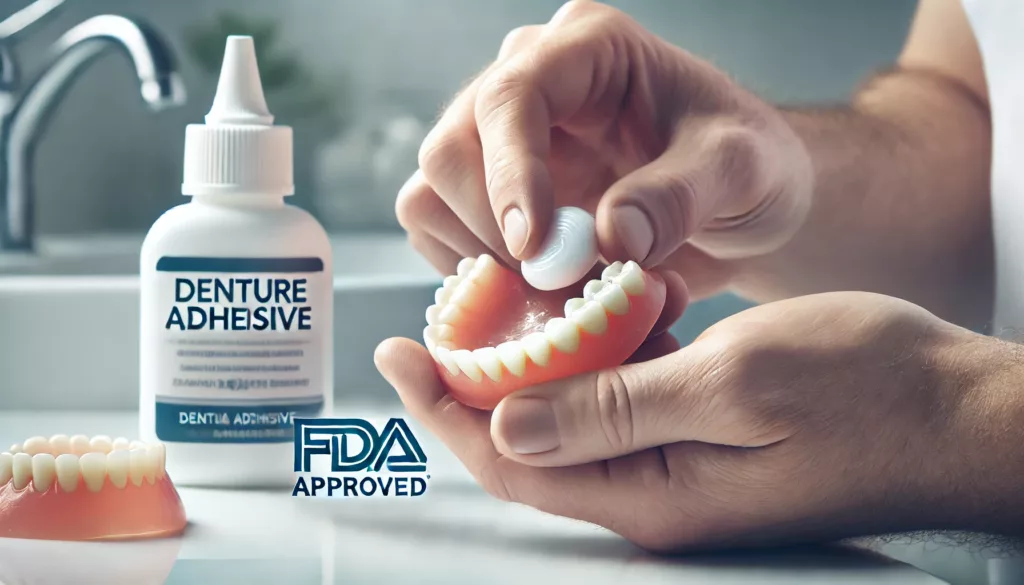
This article explains the regulatory requirements for denture adhesives, their classifications, and what manufacturers need to do to comply with FDA standards.
Understanding FDA Classification for Denture Adhesives
The FDA regulates medical devices, drugs, and related products to ensure public safety. Denture adhesives are categorized under medical devices because they are applied to hold dentures in place and improve oral comfort.
According to the FDA’s classification system, denture adhesives are generally regarded as:
- Class I Medical Devices: This category includes products with minimal potential risk to users. Denture adhesives fall under this classification because they are non-invasive and intended for external use in the oral cavity.
- General Controls: Class I devices are subject to general controls, including proper labeling, manufacturing standards, and pre-market registration.
Do Denture Adhesives Require FDA Registration?
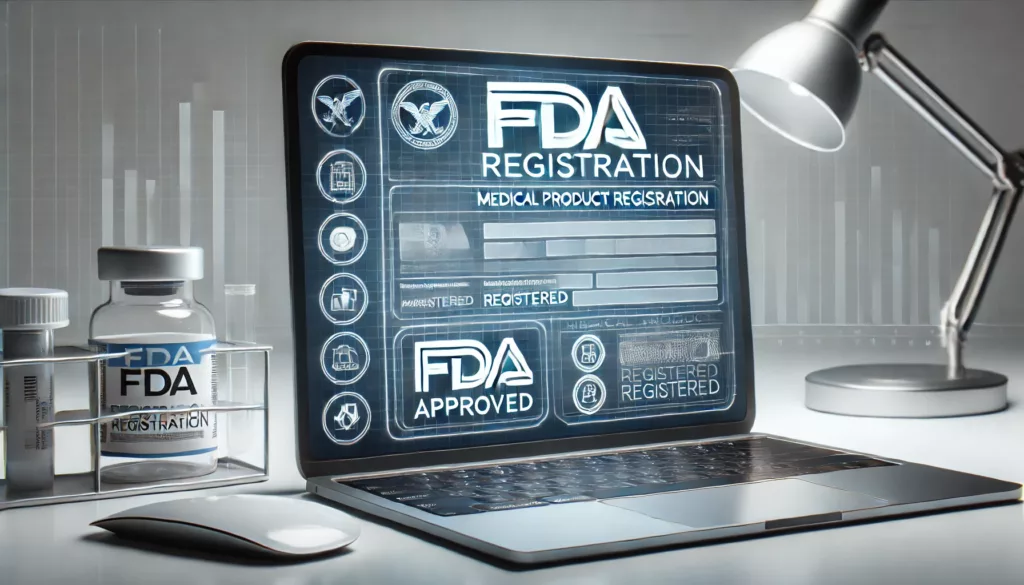
Yes, manufacturers and distributors of denture adhesives must register their products with the FDA. This process is part of the FDA’s regulatory requirements to monitor safety, quality, and performance. Key points include:
- Establishment Registration: Companies that manufacture or distribute denture adhesives must register their establishment with the FDA.
- Device Listing: Each denture adhesive product must be listed with the FDA to ensure proper identification.
- Labeling Compliance: Products must include accurate labeling, directions for use, and safety information as required by the FDA.
While Class I devices typically do not require premarket approval (PMA) or detailed clinical trials, manufacturers must comply with general controls and submit accurate information.
Why is FDA Registration Important for Denture Adhesives?
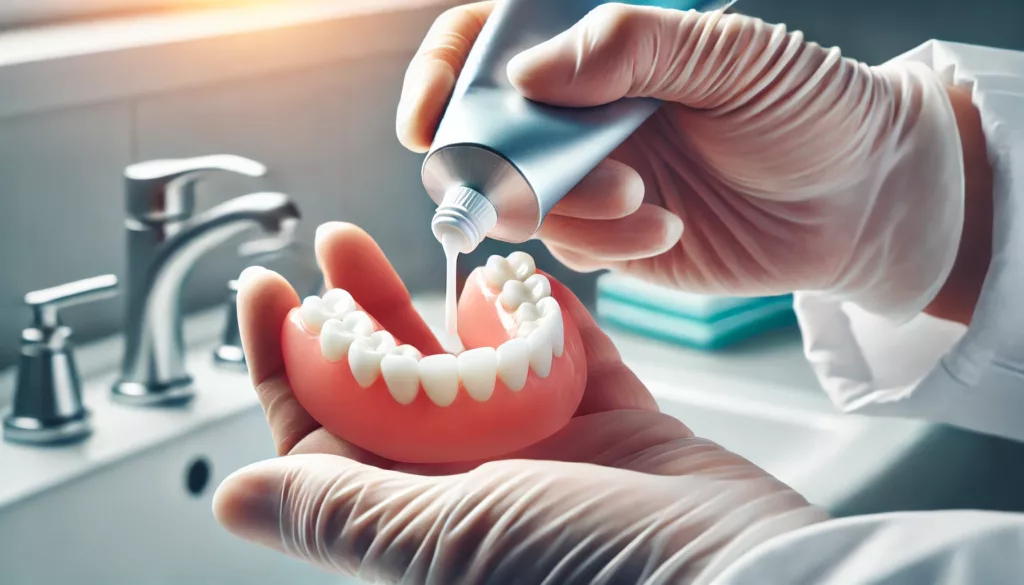
FDA registration ensures that denture adhesives meet safety and quality standards, protecting consumers from harmful or ineffective products. Key benefits include:
- Consumer Safety: Registered products comply with manufacturing guidelines to ensure safe materials and formulations.
- Product Accountability: FDA registration allows tracking of products and manufacturers, ensuring accountability in case of product recalls or safety concerns.
- Market Approval: Registered denture adhesives gain credibility and legal access to the U.S. market.
Failure to comply with FDA requirements can result in penalties, product recalls, or removal from the market.
Requirements for Manufacturers of Denture Adhesives
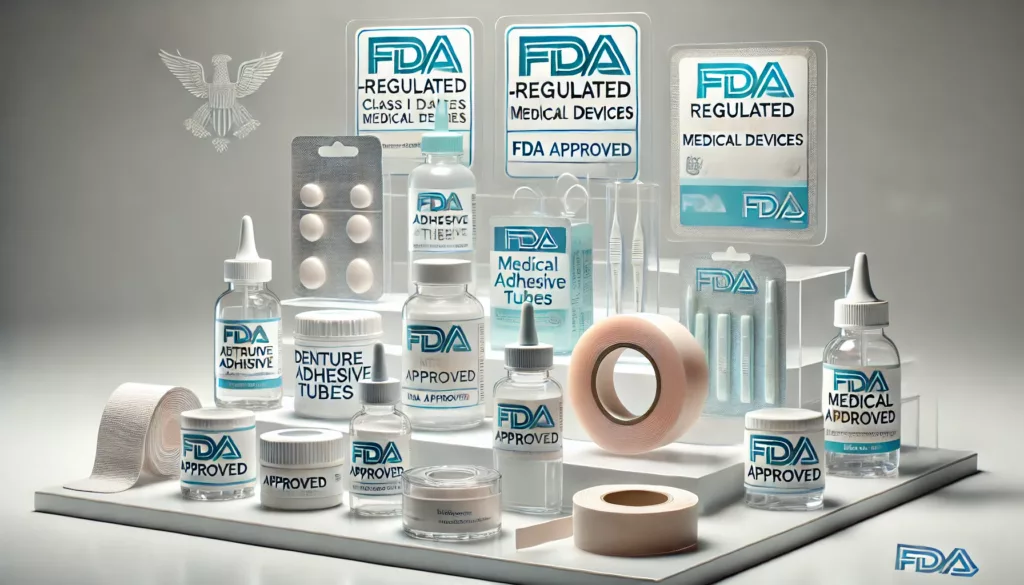
Manufacturers of denture adhesives must meet several FDA requirements to ensure compliance:
- Material Safety: Formulations must use materials that are non-toxic and suitable for oral use.
- Good Manufacturing Practices (GMP): Compliance with GMP ensures consistent quality and safety during production.
- Adverse Event Reporting: Manufacturers must report any adverse events related to their products to the FDA.
- Proper Labeling: Labels must include clear information such as product name, usage instructions, and safety warnings.
Manufacturers must also submit documentation for 510(k) clearance if the adhesive has significant modifications or unique claims that differ from existing products.
Are Over-the-Counter Denture Adhesives Regulated?
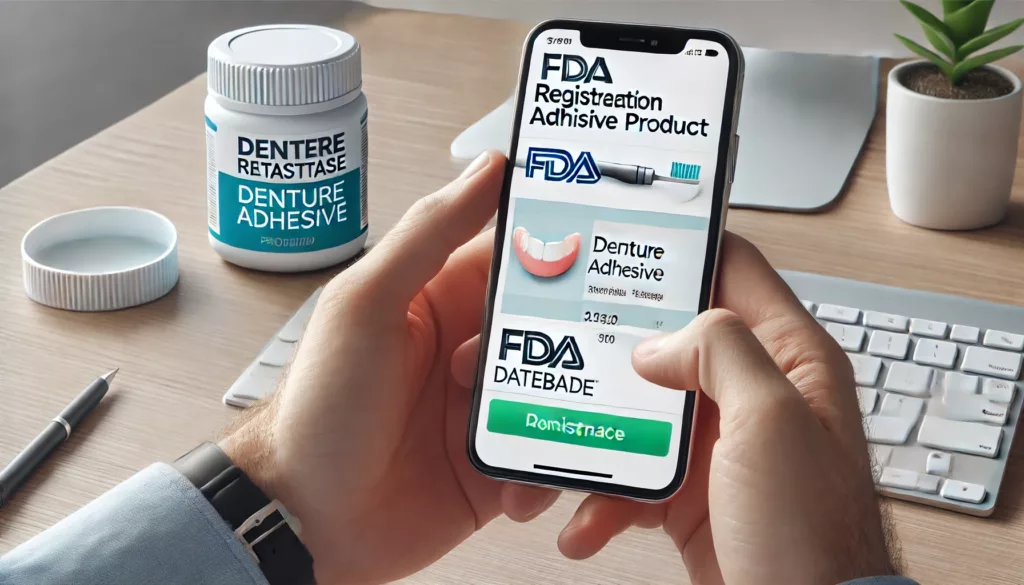
Yes, over-the-counter (OTC) denture adhesives are regulated as Class I medical devices under FDA rules. However, they are subject to fewer requirements compared to Class II or Class III devices. OTC products must still comply with general controls, including:
- FDA Registration and Listing
- Compliance with GMP Regulations
- Proper Labeling and Instructions for Use
The FDA also monitors adverse events or consumer complaints related to OTC denture adhesives to ensure ongoing safety.
Common Safety Concerns with Denture Adhesives
While denture adhesives are generally safe, improper use or low-quality formulations can pose risks. Some safety concerns include:
- Zinc Overexposure: Excessive use of zinc-based denture adhesives can lead to zinc toxicity, which may cause nerve damage or other health issues.
- Allergic Reactions: Some individuals may develop allergies to certain adhesive components.
- Oral Irritation: Poorly formulated adhesives can cause gum irritation or discomfort.
To address these concerns, the FDA requires accurate labeling and encourages consumers to follow usage instructions carefully. Manufacturers must also develop safe, non-toxic formulations.
How Consumers Can Identify FDA-Registered Denture Adhesives
Consumers can ensure they are purchasing FDA-registered denture adhesives by:
- Checking Labels: Look for clear product labeling with manufacturer information and usage instructions.
- Researching Manufacturers: Verify the manufacturer’s FDA registration status on the FDA Establishment Registration & Device Listing database.
- Looking for Credibility: Opt for products from reputable brands with a history of safety and compliance.
Consumers should avoid unregistered or improperly labeled products, as they may not meet safety standards.
Conclusion
Denture adhesives are classified as Class I medical devices and must be registered with the FDA to ensure safety, quality, and compliance. Manufacturers are required to register their establishments, list their products, and comply with labeling and manufacturing standards. These regulations help safeguard consumers by ensuring that denture adhesives are safe, effective, and reliable for daily use.
For consumers, choosing FDA-registered products and following usage instructions can minimize risks and enhance denture comfort. By adhering to FDA guidelines, manufacturers and consumers can ensure the continued safety and effectiveness of denture adhesives in the market.
Frequently Asked Questions
Are denture adhesives considered medical devices?
Yes, denture adhesives are classified as Class I medical devices by the FDA.
Do all denture adhesives require FDA approval?
Denture adhesives do not require premarket approval (PMA), but manufacturers must register their products and comply with FDA general controls.
What is the FDA registration process for denture adhesives?
Manufacturers must register their establishment, list their products, comply with GMP, and ensure proper labeling.
Can denture adhesives cause health issues?
Improper use or poor-quality adhesives can lead to issues like zinc toxicity, allergies, or oral irritation. Always use FDA-registered products.
How can I check if a denture adhesive is FDA-registered?
You can check the FDA Establishment Registration & Device Listing database for the manufacturer’s information.
Are OTC denture adhesives regulated by the FDA?
Yes, over-the-counter denture adhesives are regulated as Class I medical devices and must comply with FDA requirements.






